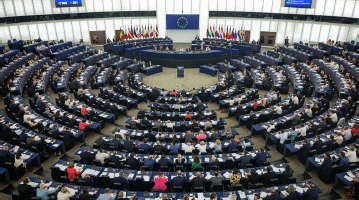The Ministry of Finance officially rejected Bemaks’ complaint and confirmed the Tax Administration’s decision the company owes the state €28.4 million in unpaid taxes and interest.
This all started last June when Deputy Prime Minister Momo Koprivica asked the Tax Office to look into Bemaks. Now that everything’s been confirmed, he says the company is legally required to pay the full amount. When asked about the timeline for forced collection, he said the deadlines are defined by law and should kick in fairly soon.
The issue centers around a sale from July 2022. The former owner, Veselin Kovačević, sold Bemaks to Ivan Ubović for €750,000. On paper, it looked like he made only €200 in profit, so the tax came out to just €30. But at the end of 2021, the company had over €140 million in equity and €120 million in assets. So selling it for under one percent of its value raised some serious red flags.
The Tax Office brought in financial experts, reviewed everything, and in February 2025 concluded that there was clear tax evasion. That’s how they calculated the €28.4 million.
Bemaks hasn’t commented yet. Meanwhile, Kovačević is trying to cancel the 2022 sale in court, and in his complaint, he claimed he didn’t know the law would change and be applied retroactively. But Koprivica says nothing retroactive was introduced the law just allows the tax office to review suspicious deals within the limits of the statute of limitations.
He also said this isn’t an isolated case. The government is reviewing similar deals from the past and plans to keep going. His message is that institutions will work for everyone, not just for the privileged.
He also reminded that the state has the legal tools to enforce payment, so it’s now a matter of when, not if.
What stands out to me in this case is how it highlights a turning point in the state’s approach to corporate accountability. For years, there’s been a sense that high-value deals like this could quietly slip through the cracks, especially when influential names were involved.
But this time, the authorities followed through even when the paper trail seemed thin and the profits artificially low. It sends a clear message that creative accounting won’t fly anymore, and that the institutions are finally flexing their legal power in a way that feels more transparent and fair. Whether this momentum continues will say a lot about how serious the government really is about systemic reform.
Written by our correspondent A.A.



